


Enter our Virtual Gallery of
MINERALMINERS.COM® - Your Personal 'Link' Direct to the Ametrine Mines!TM



Enter our Virtual Gallery of
Links To Ametrine Information Topics On This Page:
Go up to the Ametrine Information Index
Go up to the Ametrine Information Index
See all of our natural quartz varieties:
Go up to the Ametrine Information Index
Ametrine is a macrocrystalline variety of the mineral quartz (SiO2). Quartz is the most abundant single mineral on earth. It makes up about 12% of the earth's crust, occurring in a wide variety of igneous, metamorphic and sedimentary rocks.
Quartz varieties are commonly separated into two groups based on the size of the individual grains or crystals; macrocrystalline quartz in which individual crystals are distinguishable with the naked eye, and cryptocrystalline quartz in which the individual crystals are too small to be easily distinguishable under the light microscope.
Some of the macrocrystalline quartz varieties are: Amethyst, Ametrine, Cat's-eye Quartz, Citrine, Phantom Quartz, Rock Crystal, Rose Quartz, Rutilated Quartz and Smoky Quartz.
Blue Aventurine Quartz and Green Aventurine Quartz are actually quartzites (a rock, not a mineral) composed essentially of interlocking macrocrystalline quartz grains with disseminated grains of other color imparting minerals.
The cryptocrystalline varieties of quartz may be separated into two types;
fibrous and microgranular. Chalcedony is the general term
applied to the fibrous cryptocrystalline varieties.
Agate is an example of a fibrous cryptocystalline
banded chalcedony variety of quartz. Carnelian, Chrysoprase and bloodstone
are other chalcedony varieties.
Chert is the general term applied to the granular cryptocrystalline
varieties of quartz, of which flint and Jasper are examples.
Go up to the Ametrine Information Index
Ametrine is the name used for quartz in which both amethyst and citrine
occur together.
Iron atoms may enter the crystal structure of quartz as an impurity in a
number of sites and in different oxidation states.
For ametrine to occur, iron impurities in the Fe4+ oxidation
state must be present in the specific color producing sites in a
portion of the quartz
and Fe3+ must be present in the specific color producing sites
in another portion of the quartz.
There are a number of processes by which iron can be present in
more than one oxidation state in different parts of the same specimen, and
they are not all fully understood.
The colors in ametrine have been artificially produced in quartz by irradiation and/or heating. Ametrine also occurs (rarely) in nature.
The most well-known natural ametrine source is the Anahi mine in Bolivia. At this location, both amethyst and citrine are thought to have been crystallizing simultaneously during formation. For this to occur, the temperature would have to be near to the point above which Fe3+ would enter the appropriate color producing site in quartz thereby forming citrine, and below which Fe4+ would enter the appropriate site resulting in the formation of amethyst. There had to be a slight difference in temperature between the crystallizing surfaces of the quartz, so that some of the surfaces were of slightly higher temperature and thereby crystallizing as citrine while other surfaces were slightly cooler and crystalizing as amethyst. This could occur if one side of the crystal was facing a vent or other such heat source. Any change in pressure would affect the temperature at which citrine formed instead of amethyst. This delicate balance of the temperature, pressure and chemical environment of the crystallizing ametrine quartz all had to be maintained while crystallization proceeded.
Ametrine is readily recognized by its colors, hardness, glassy luster, conchoidal fracture and lack of cleavage.
Go up to the Ametrine Information Index
The gem varieties of quartz have been used as gemstones and other ornamental objects for thousands of years.
Ametrine has only been readily available to the consumer since 1980 when material from the Anahi mine in Bolivia began to appear on the market. Before this it was considered to be quite unusual and was known as amethyst-citrine quartz, trystine or golden amethyst.
1.) The astrological sign of ametrine is Libra
Go up to the Ametrine Information Index
Ametrine is said to have all the metaphysical properties of both amethyst and citrine combined, as well its own unique properties; aids in meditation, relieves tension, disperses negativity and helps to eliminate prejudice.
Amethyst is said to bring serenity and calm, and to enhance one's
ability to assimilate new ideas. It is also said to give strength and
mental stability, and to provide
balance between one's physical, emotional, and intelectual states. Amethyst is
also said to make one shrewd in business matters. Amethyst is said to help remove toxins from the body and to
treat arthritus. It also is said to be usefull in treating a number of
disorders including those of the digestive system, heart, nervous system,
skin and hearing. Amethyst also is said to help provide
relief from pain and strengthen the immune system.
Citrine is said to be especially usefull in stimulating one's
mental capacities, and to enhance creativity and intuition and strengthen
one's self-confidence. It is also said to give emotional control while
making one more alert. Citrine is also said to be very helpfull in
assisting one to acquire and maintain wealth. Citrine is said to help
remove toxins from the body and to treat muscular disorders, and to help
stimulate healing in general. It also is said to be usefull in treating
a number of other disorders including those of the heart, liver, kidneys
and digestive system. Citrine is also said to help provide relief
from the effects of radiation, and to facilitate absorption of antioxidants.
For more in-depth metaphysical information, see our Metaphysical Books section.
Go up to the Ametrine Information Index
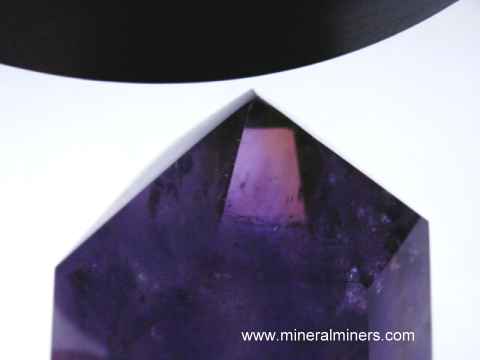 |
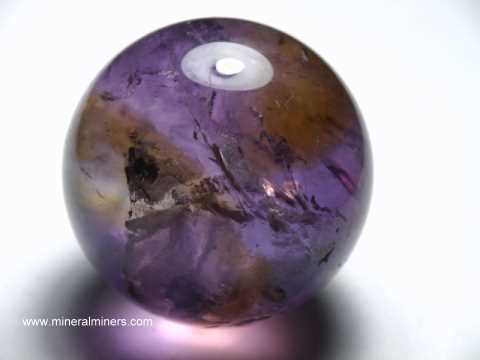 |
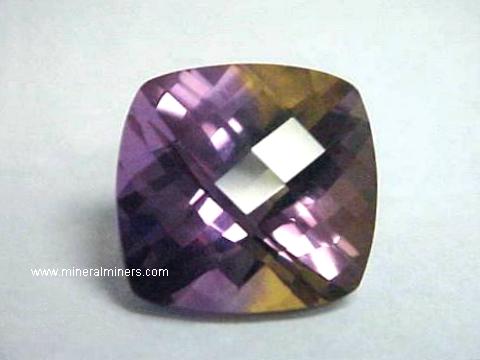 |
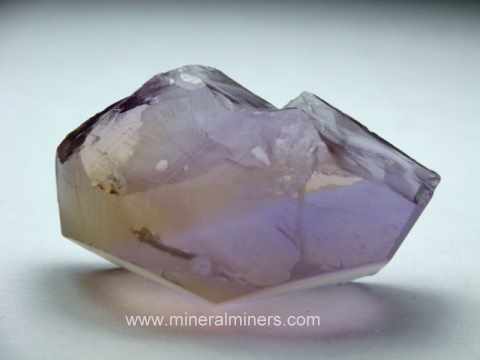 |
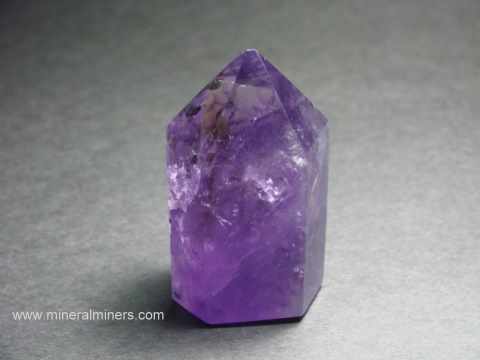 |
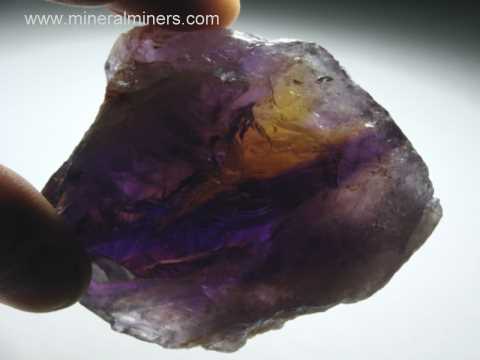 |
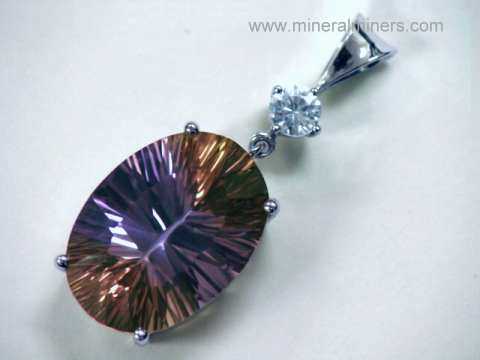 |
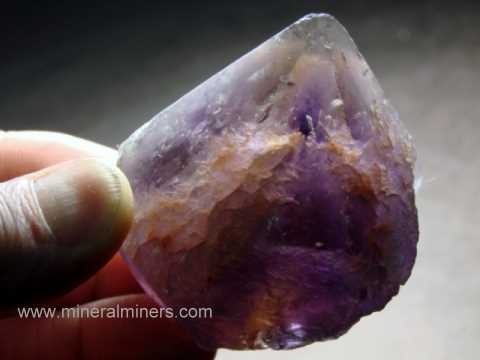 |
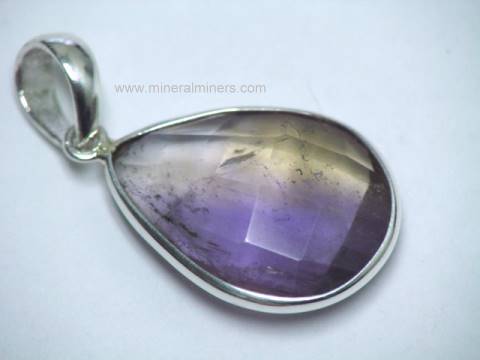 |
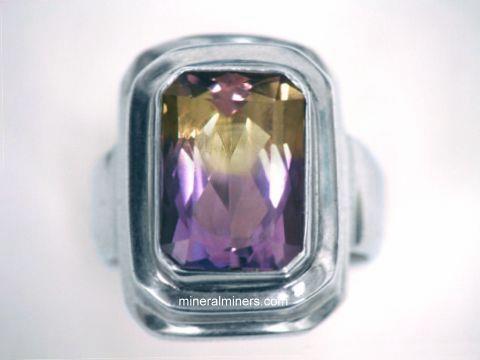 |
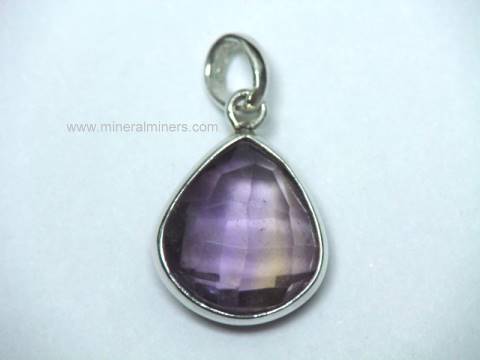 |
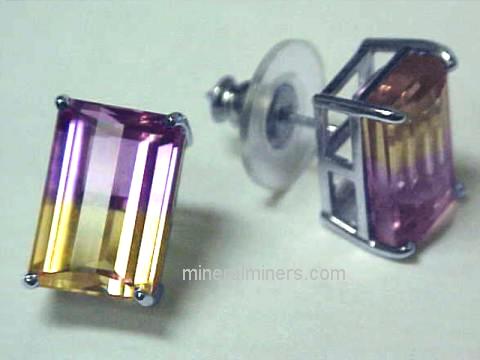 |
We have additional ametrine items in stock at our mineral warehouses.
Be sure to let us know if you have any natural ametrine requests!